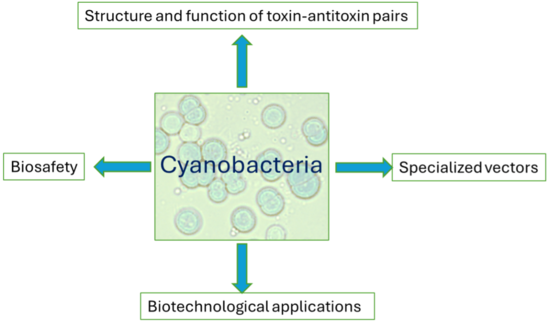Structural Biology
P1-0048
Duration: 1.1.2018 - 31.12.2027
Head: prof. dr. Dušan Turk
Head at FKKT:
prof. dr.
Dolinar Marko
The focus of our research is on the biochemical and molecular-biological processes occurring in cyanobacteria—environmentally significant microorganisms capable of performing photosynthesis. Since they do not require expensive media for growth and can be cultivated in large quantities, they also hold great biotechnological potential.
Bioinformatics analyses show that the genomes of some cyanobacteria, such as Microcystis aeruginosa, contain an unusually high number of toxin-antitoxin gene pairs. These encode protein molecules or RNA that function within the cell and regulate its survival. The role of these macromolecular pairs in the cell is not yet fully understood, which is why we aim to uncover their significance.

Understanding the intermolecular interactions between cyanobacterial toxins and antitoxins begins with their identification, followed by the preparation of recombinant proteins, their isolation, and their functional and structural characterization. This often requires the construction of new vectors for introducing genes into laboratory strains of Escherichia coli bacteria, as well as into selected biotechnologically significant cyanobacteria.
By exploring the diverse biological molecules produced by cyanobacteria, we are also gaining insights into their potential application value in various branches of biotechnology. Due to the exceptional environmental importance of cyanobacteria, it is necessary to ensure that the survival of genetically modified cyanobacteria in the natural environment is prevented in the context of their broader biotechnological use. It is crucial to incorporate genetic switches into genetically modified cells to enhance biological safety.
We are also studying the interactions between cyanobacteria and other organisms present in the natural environment, aiming to identify the molecular mechanisms responsible for these interactions.